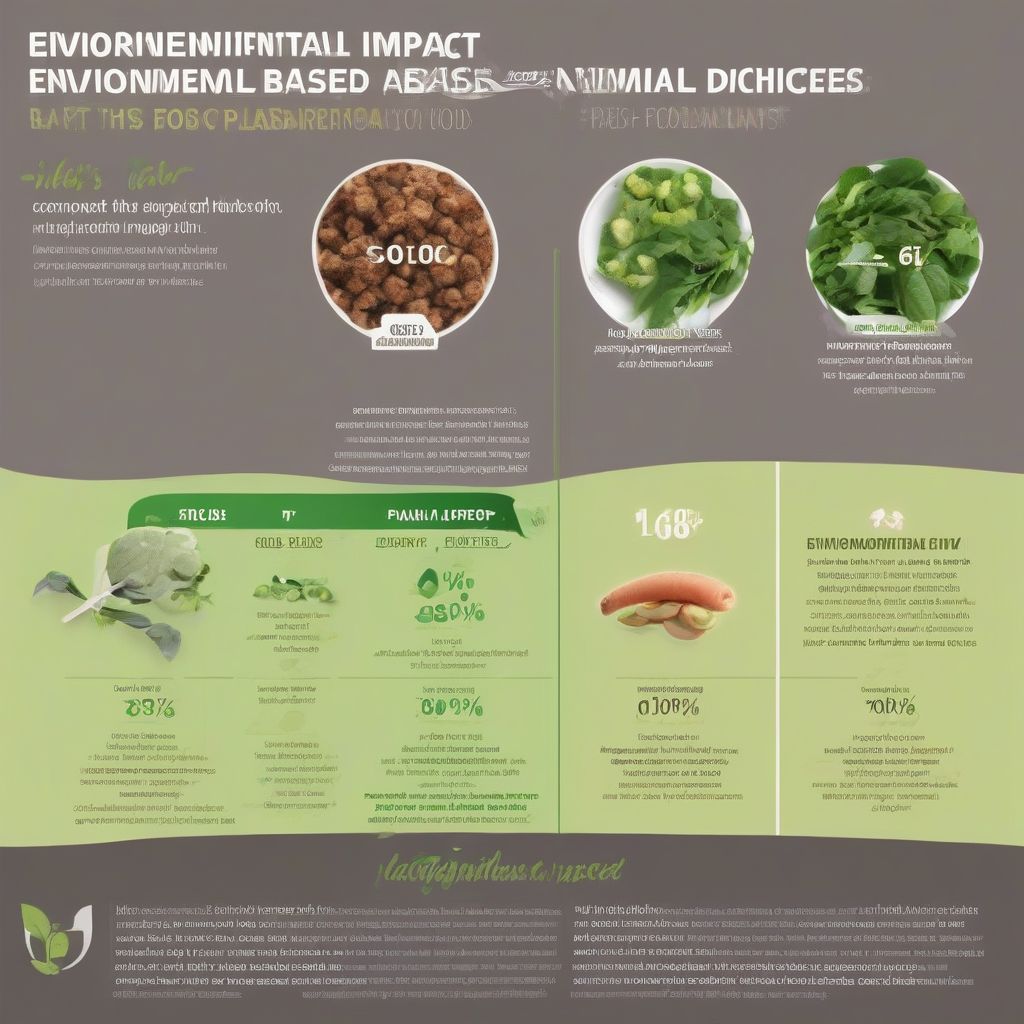Have you ever stopped to think about the impact your food choices have on the planet? It’s easy to feel overwhelmed by the sheer scale of climate change, but the truth is, our individual actions have power. One of the most impactful changes you can make is adopting a plant-based diet. Now, before you envision endless plates of lettuce, let’s explore the compelling environmental benefits and how this dietary shift can contribute to a healthier planet.
The Meat of the Matter: How Animal Agriculture Impacts Our Planet
The environmental burden of animal agriculture is substantial, contributing significantly to greenhouse gas emissions, deforestation, and water pollution.
Greenhouse Gas Emissions: A Recipe for Disaster
Animal agriculture is a major contributor to greenhouse gas emissions, even surpassing the transportation sector in some analyses. Livestock, particularly cattle, produce significant amounts of methane, a potent greenhouse gas far more effective at trapping heat than carbon dioxide.
Deforestation: Making Way for Meat
The demand for meat drives deforestation, as vast tracts of land are cleared for grazing and growing animal feed. This loss of forests exacerbates climate change, as trees play a crucial role in absorbing carbon dioxide from the atmosphere.
Water Woes: The Thirst for Animal Products
Producing animal products is incredibly water-intensive. From growing feed crops to providing drinking water for livestock, the water footprint of meat and dairy dwarfs that of plant-based alternatives.
 Sustainable Food Choices
Sustainable Food Choices
The Plant-Powered Solution: How a Plant-Based Diet Benefits the Environment
Transitioning to a plant-based diet can significantly reduce your environmental footprint and contribute to a more sustainable future.
Lowering Greenhouse Gas Emissions: Cooling Down the Planet
Studies have consistently shown that plant-based diets have significantly lower greenhouse gas emissions compared to diets high in meat and dairy. By choosing plant-based proteins like beans, lentils, and tofu, you can drastically reduce your carbon footprint.
Preserving Precious Land: Protecting Our Forests
Reducing our reliance on animal agriculture can help protect our planet’s forests. By choosing plant-based foods, you’re essentially voting for land conservation and biodiversity preservation.
Conserving Water Resources: Every Drop Counts
Switching to a plant-based diet can save thousands of gallons of water per year. By choosing fruits, vegetables, and grains over meat and dairy, you’re contributing to a more water-secure future.
Beyond the Plate: Additional Environmental Benefits of Plant-Based Eating
The benefits of plant-based eating extend beyond the immediate environmental impacts.
Reducing Pollution: Cleaner Air and Water
Intensive animal agriculture generates significant amounts of animal waste, which pollutes waterways and contributes to air pollution. Plant-based diets help mitigate these issues, promoting cleaner air and water for all.
Combating Antibiotic Resistance: A Global Health Concern
The overuse of antibiotics in animal agriculture contributes to the growing problem of antibiotic resistance. By choosing plant-based options, you’re taking a stand against this global health threat.
Making the Switch: Tips for Transitioning to a Plant-Based Diet
Transitioning to a plant-based diet doesn’t have to be overwhelming. Here are some tips to get you started:
- Start Gradually: Begin by incorporating more plant-based meals into your week and gradually reduce your meat and dairy consumption.
- Explore New Recipes: Plant-based cuisine is incredibly diverse and delicious. Don’t be afraid to experiment with new recipes and flavors.
- Focus on Whole Foods: Prioritize whole, unprocessed plant foods like fruits, vegetables, legumes, and whole grains.
- Seek Support: Connect with others who are on a plant-based journey for inspiration, recipes, and support.
Conclusion: Savor the Flavor of Sustainability
Choosing a plant-based diet is a powerful act of environmental stewardship. By reducing our reliance on animal agriculture, we can contribute to a healthier, more sustainable planet for ourselves and future generations. From reducing greenhouse gas emissions to conserving precious resources, the benefits of plant-based eating are undeniable.
As you embark on your culinary adventures, remember that every plant-based meal is a step towards a brighter, more sustainable future. Embrace the power of your plate and savor the flavor of sustainability.
[amazon bestseller=”Plant-Based Cookbooks”]
